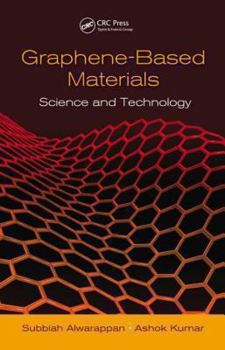Graphene-Based Materials: Science and Technology
Continuously studied since its discovery, graphene offers truly unique opportunities, because unlike most semiconductor systems, its 2D electronic states are not buried deep under the surface and it can be easily accessed directly by tunneling or by other local probes. An in-depth analysis of recent advances in graphene research, Graphene-Based Materials: Science and Technology discusses synthesis, properties, and their important applications in several fields. It examines methods for synthesis of graphene as well as surface characterization, properties, and application in biosensors and energy storage.
The book begins with a brief review of the history of graphene and a discussion of its important properties. It then presents the different methods of graphene synthesis available and a brief overview of a few important characterization techniques that distinguishes graphene from its allotropes. The authors detail the applications of graphene in high-speed electronics, field-effect transistors, biosensors, gas-sensors, ultra-capacitors, photonics, optoelectronics, and drug delivery. They conclude with coverage of the toxicity properties of graphene and the future of graphene research. Written by experts with more than a decade of experience in nanotechnology research, the book incorporates the latest literature and findings in the field. Its emphasis on applications, especially biomedical/electrochemical and energy storage applications, sets it apart from other books on this topic. It provides those working in graphene and related materials a resource that helps initiate new thinking.Format:Hardcover
Language:English
ISBN:1439884277
ISBN13:9781439884270
Release Date:October 2013
Publisher:CRC Press
Length:224 Pages
Weight:1.00 lbs.
Dimensions:0.8" x 6.2" x 9.1"
Related Subjects
Engineering Science Science & Math Science & Scientists Science & Technology TechnologyCustomer Reviews
0 rating





